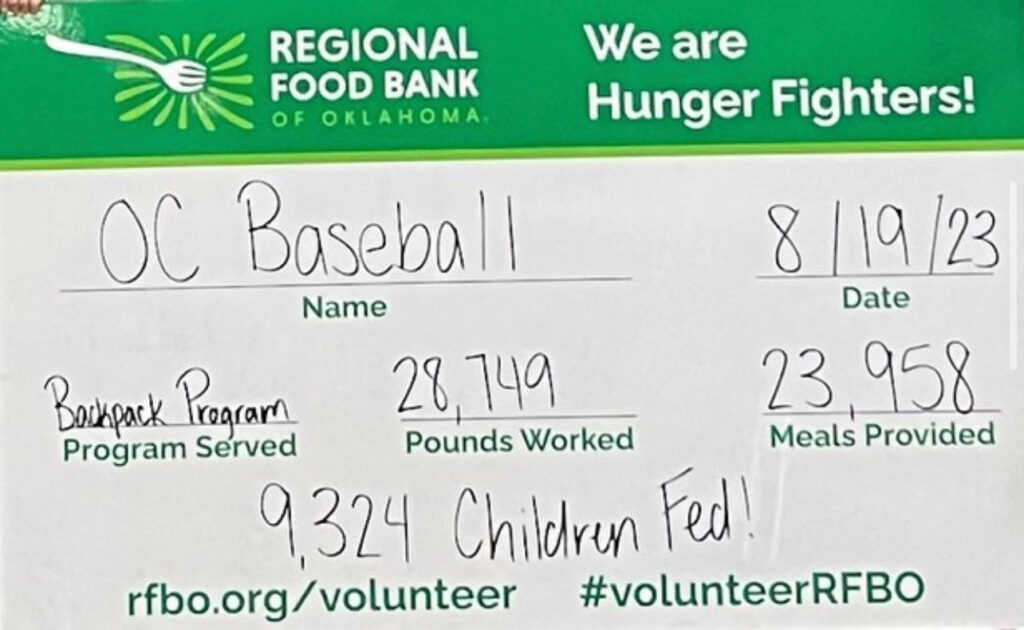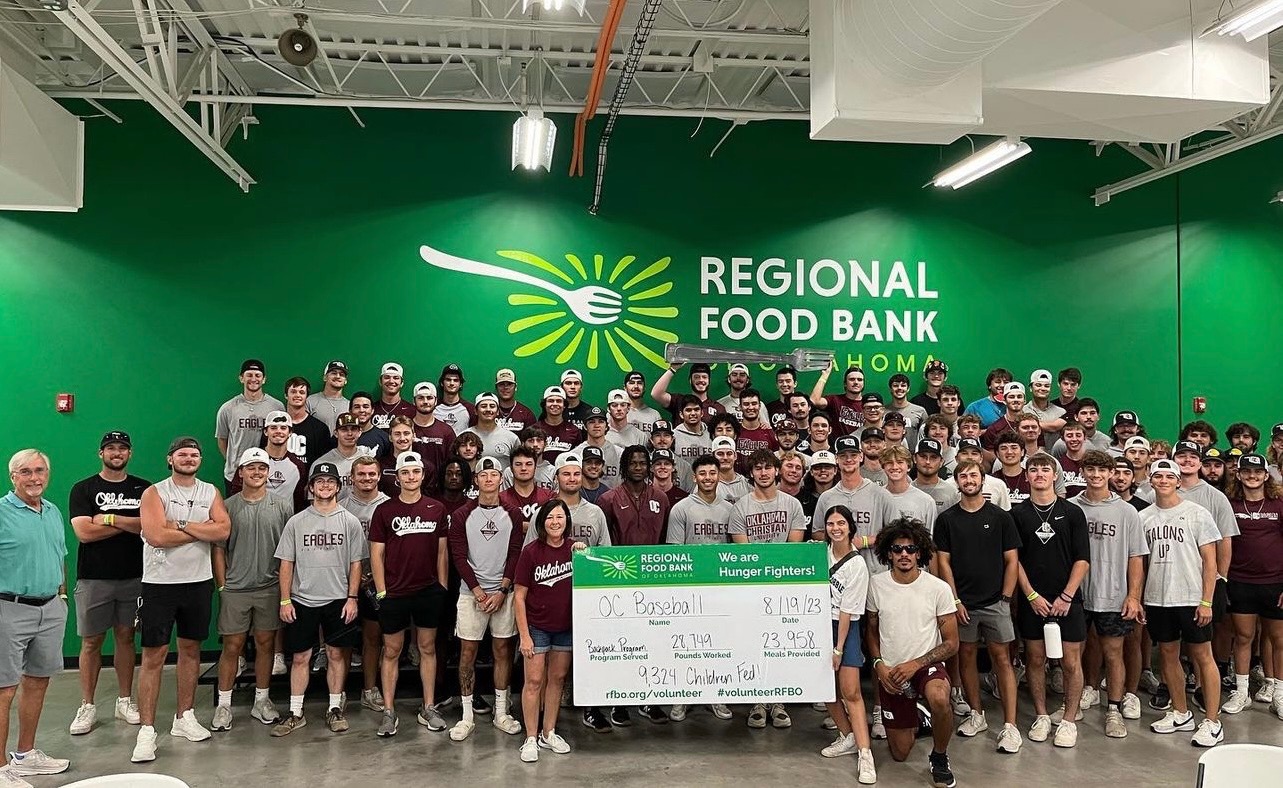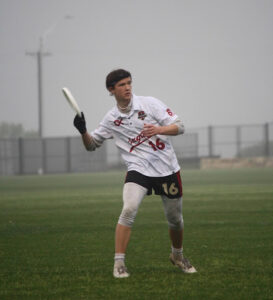The Oklahoma Christian University baseball team has reached a player count of 94 between its junior varsity and varsity teams. The high volume of players has created new opportunities and challenges for the team.
Head baseball coach Lonny Cobble explained how the team grew to its current size.
“This number isn’t normal, we’re bigger than some football teams around the country. We were recruiting like normal,” Cobble said. “We had guys who wanted to walk on and be a part of the program and I knew the school needed the enrollment and the money, so we bit the bullet and made it happen.”
Cobble spoke on how the coaching staff is managing players during practices staggered throughout the day.
“Our coaches are not paid a lot, but they put a lot of time in and do a really good job of trying to make sure everybody gets an opportunity,” Cobble said. “If we ever need to get rid of somebody, we want to make sure they got a fair shot.”
To foster community between the players, the whole team volunteered at the Oklahoma Regional Food Bank. The team was able to pack a record-setting 23,958 meals in just three hours.
Cobble is trying to implement all-team activities, like volunteering and church time, to strengthen the team’s unity.
“You have to have good team chemistry,” Cobble said. “It is hard because you have 94 different personalities out there and you’re trying to get them all to be cohesive. We try to do things like the food bank to help create cohesiveness.”
Freshman Colton Paxton participated in the food bank service. The team functioned at the food bank similarly to how they would on the baseball field.
“Everybody had different jobs. I went and got the crates when they had finished packing them and put them to the back,” Paxton said. “There were so many people, and it was a good time.”

Junior Hunter Jones said he was concerned about the larger team not being as close as the smaller teams of his past two years, but he also sees the high points of a large team.
“We have more depth to the different positions and a variety of good players,” Jones said. “Last year, we only had a few good pitchers, but now we have a lot more to help out.”
Paxton said the player volume increases competition, but does not diminish comradery.
“Everybody is pushed to compete a little bit harder,” Paxton said. “Everybody likes each other and everybody’s good friends, but practices are going pretty hard and everybody’s competing against each other. We’re a lot more competitive, which is a good thing.”
Cobble discussed how players are rotated in and out of playing games.
“If you work hard, practice hard, you’re there every day and you never get in trouble, then there’s got to be a reward somewhere for those people,” Cobble said, “I try the best I can to play lots of people, especially if they’ve come out and worked hard, but sometimes, it works out, sometimes, it doesn’t. But the best players usually get most of the playing time.”
Although hard work is valued on the baseball team, skill plays an important role too. At the end of the semester, skill will determine whether you are one of the 34 players to be cut.
Cobble said the first 20 are easy to eliminate due to conduct violations like low grades or too many chapel absences, but the last 10-15 eliminations are the ones he finds the hardest.
“We have exit meetings right before Thanksgiving. After Christmas, we’d like to be at 60 guys,” Cobble said. “There’s always going to be guys not making the team because they’re just not very talented. That’s the worst thing about the job. I love coaching and I love being at the school. The worst thing is telling the kid, ‘Hey, you’re not good enough to play here.’ That’s no fun for anybody.”
Players cut from the team are not left to dry by Cobble.
“We talk to them then and try not to hurt people’s feelings, but we try to help them find another place if they want to go play somewhere else,” Cobble said. “Some of them want to stay in school because they’re close to finishing their degrees, and we want to support them if they stay here too.”
Cobble shared a word of advice he gave to his players.
“We always tell them, ‘Don’t get too high with the highs, don’t get too low with the lows.’ There’s going to be really bad days,” Cobble said. “The best players in the world bounce back from it the next day because they know they can do it.”











Be First to Comment